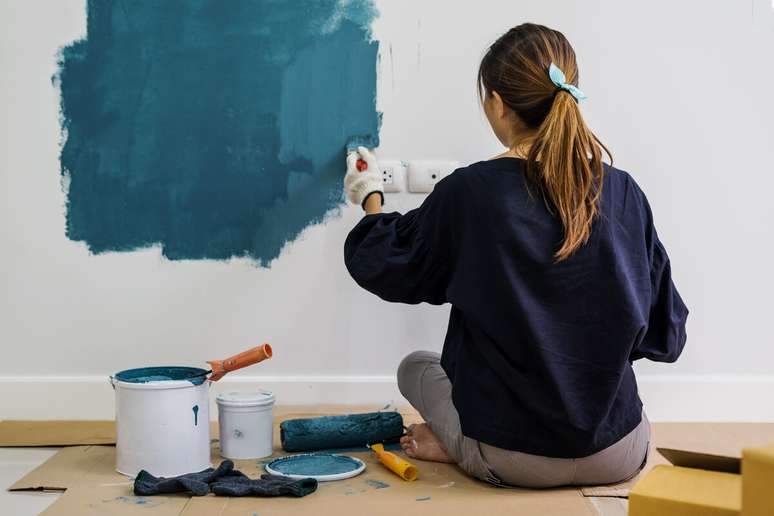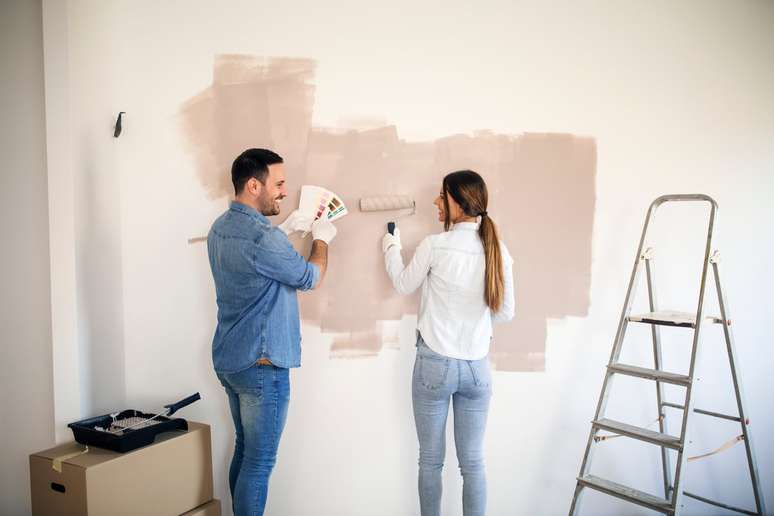A little attention to painting is important when you are only renewing the color of the rooms.
Painting your home is a great option to renovate your decor in a cost-effective and practical way. Although there are professionals who perform this type of service, it is entirely possible to do it yourself. However, some precautions are essential to avoid headaches and have a good result.
So, take a look at some tips from Argemiro Sanches, marketing manager at Tintas Eucatex, and Yohan Luis, painter and specialist at the company.
1. Items other than paint
Paint is an essential item for anyone who wants it paint the housebut it is not the only one. For the painting to be done well, some tools are very important. “In the case of painting the walls it will be necessary to use: sandpaper to smooth the surface, cloth to remove dust after sanding, paint tray, roller, brush, spatula to mix the paint, tape to insulate the corners and door and window jambs, as well as paint”, recommend Argemiro Sanches and Yohan Luis.
2. Paint Care
In addition to choosing a paint that is suitable for the needs of the resident and the place where it will be applied, You have to be careful with the product. “In order for the paint to meet all the characteristics highlighted on the packaging, as well as the expectations regarding the result, it is very important that it is handled correctly,” say the experts.

3. Ink management
According to professionals, when you open the paint can, you need to mix the product well. “After homogenization, a part must be separated for dilution, following the recommendations on the package, which may vary depending on each product. Mix well again and, from that moment on, the paint is ready to be used,” they say. Otherwise, the painting result it could be damaged.
4. Protection and security
In addition to choosing the right tools and handling the paint properly, it is essential to take protective and safety measures during the painting process. Wear old clothes or an apron to avoid stains, and protect the floor and furniture with tarps or plastic to prevent spills. Wear gloves to protect your hands and a mask to avoid inhaling fumes, especially in poorly ventilated areas. Protective glasses can also be useful to protect your eyes from possible paint splashes.
5. Post-painting care
Clean your tools immediately after painting. For water-based paints, use warm water and soap; for oil-based paints, use suitable solvents. Close paint cans tightly and store them in a cool, dry place. It is also very important to keep the room well ventilated during and after painting to ensure proper drying of the paint.
6. Save the remaining paint
If there is any ink left after painting, You can save it for later use. However, according to professionals, the product will lose its original characteristics due to contact with bacteria remaining in the air. “If you choose to save, only store the undiluted paint in its own jar and use a clean bottle to store the diluted paint,” they explain. Also, it is important to remember to seal the container tightly.
Source: Terra
Ben Stock is a lifestyle journalist and author at Gossipify. He writes about topics such as health, wellness, travel, food and home decor. He provides practical advice and inspiration to improve well-being, keeps readers up to date with latest lifestyle news and trends, known for his engaging writing style, in-depth analysis and unique perspectives.








